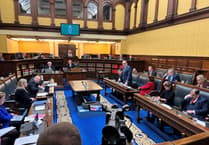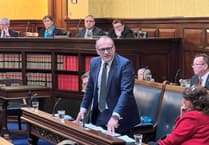The Government had to dip into reserves to the tune of £126.5m to balance the books in the current financial year.
But this is lower than the planned drawdown of £152.9m which had been predicted, thank to higher than forecast income tax receipts.
The five-year financial plan continues to rely on transfers from general reserves to bridge the gap between income and expenditure.
Withdrawals are, however, planned to reduce as government establishes ways to broaden its income base and increase revenue.
The 2024-25 budget relies on the use of £98m of reserves.
This can be used as a proxy for government’s underlying operating deficit.
Over the next four years, the drawdowns fall steadily, to £62.6m in 2025-26, £46.6m in 2026-27, £35.8m in 2027-28 and £28.6m in 2028-29.
The impact of rising wages in the private and public sector has increased income tax receipts and these are expected to be around £48m higher than budget by the end of the year.
Dr Allinson told Tynwald: ‘These additional receipts combined with a significant reduction on internal fund expenditure mean that despite the increased costs incurred by departments we are able to reduce the planned drawdown from our reserves for this year from £152.9m to £126.5m.
‘This is still a substantial amount, but nevertheless, it is lower than planned due to the application of financial discipline.’
MORE ON THE 2024 BUDGET:



.jpeg?width=209&height=140&crop=209:145,smart&quality=75)
Comments
This article has no comments yet. Be the first to leave a comment.